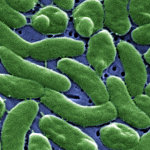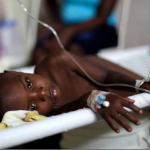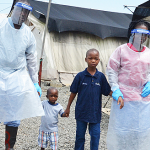The quick and frightening death of a man who contracted a kind of flesh-eating bacterium after cleaning crab pots has made national headlines. Understandably, the public wants to know what causes such a terrifying illness and what, if anything, can be done to prevent it. The media is not helping, but here's some insight.
Disease
While there is no known cure for breast cancer, there are genetic tests that can predict it, and genomic tests to help determine the risk of recurrence of some types, as well as which treatments should be most effective. Women should be optimistic about the likelihood that better and better treatments — and cures — will be found.
It used to be that Type 2 diabetes was typically seen in people over 40. But with the obesity epidemic, the age of onset is often lower. A recent study found that bariatric surgery was more effective for both weight loss and remission of the disease in those whose disease had an earlier onset. It provides a good reason not to delay surgery.
As with most politicized topics, science gets quickly drowned out by activists' hyperbole and exaggeration. The American Academy of Pediatrics says that the benefits of circumcision outweigh the risks, though it falls short of giving the procedure a blanket endorsement.
The Council has been given access to the The National Plan for the Elimination of Cholera in Haiti, drafted by UNICEF, the World Health Organization and the Haitian government to develop a new strategy to deal with this crisis. The UN needs to do today -- right now -- what it should have done years ago.
In some circles high sugar consumption, especially from sugar-sweetened beverages (SSB), has been considered to be virtually the root of all evil when it comes to health issues. But a recent study tried -- and failed -- to find a link between high SSB consumption and cancer survivors. Thus any supposed link with cancer recurrence or cancer mortality wasn't supported by this report.
For most of us, our first thought when a new pathogen causes an outbreak is: Will I get it? Epidemiologists estimate how many people will get different infectious diseases, by giving each of them a rank on the scale of how contagious they are. It's called the Basic Reproduction Number.
Who could possibly forget Ebola - the virus that we were all talking about before Zika? In June of this year, the WHO declared the end of Ebola virus transmission in the Republic of Guinea and in Liberia. Due to the large numbers of survivors there, new information is being understood about the virus and its ability to remain in humans after infection. The results are both surprising and quite scary.
Like other sources of reliable medical and scientific information, we were asked about her diagnosis and potential for being contagious. Unlike most media outlets we will not make diagnostic statements based on videotape and supposition; we will not speculate on the diagnosis or treatment. But we will spend a few moments talking about pneumonia.
Not many people in the UK, and probably in the US too, are aware that overweight and obesity are risk factors for several types of cancer. A new report from Cancer Research UK indicates that the majority of those surveyed were ignorant of that fact. This doesn't bode well for the economics of health care in the UK, and the same is likely true for the US since we're even fatter than our cousins across the pond.
Shutterstock
Zika: The mosquito-borne virus that causes microcephaly in newborns has taken the world by storm. To date, more than 80 travel-related Zika cases have been reported, with new information surfacing daily. And yet, we still know very little about the virus, but what we do know is concerning. For everything you need to know about the virus, we have compiled some of our reports below:









